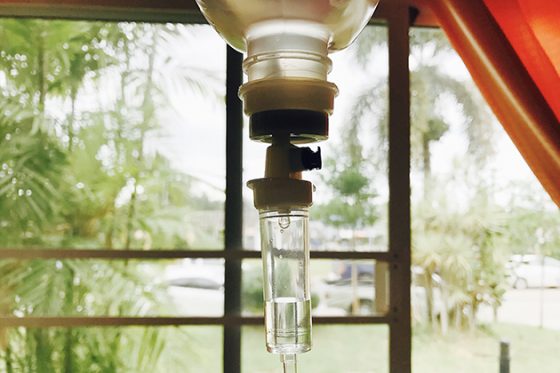The recent devastation of Hurricanes Harvey, Irma and Maria pulverized Texas, Florida and Puerto Rico, displacing hundreds of thousands of residents and racking up billions of dollars in property loss. These massive storms, as well as others, also wreaked havoc on corporate travel, crippling a good portion of the business economy by preventing companies from getting employees to their destinations.
FlightAware’s cancellation tracker reached the 3,000 mark the Sunday that Hurricane Irma hit Florida as airports closed throughout the state.
But travel issues didn’t ease once the airports reopened, because there was still the issue of missing aircraft. According to reports, JetBlue didn’t have a single plane in the state of Florida and most other airlines cleared out their aircraft from vulnerable airports ahead of the storm. So, flights couldn’t resume until airlines flew aircraft back into the state. This meant that a large number of business travelers, in one of the most convention-friendly states in the U.S., were either stranded or unable to land.
This leaves us with the question: How do you keep stormzillas like these from throwing an oversize wrench into even the most carefully orchestrated travel management plans?
The simple answer: You can’t. But there are ways to minimize the collateral damage that the next big storm brings when planning business travel.
Travel Management Companies can help, as they monitor global weather conditions daily, so as to respond quickly when major disruptions to travel occur. These companies also receive automatic flight updates, enabling them to immediately rebook individuals onto different flights. Due to the fickle nature of hurricanes, which can force additional flights to also get cancelled, companies must investigate ground transportation options as well.
Here are four sanity-saving tips that might come in handy while traveling during hurricane season:
1. Book flights wisely:
Choose an early morning flight. That way if your flight gets cancelled you have the entire rest of the day to find an alternative flight. And if possible, pick an airline with tons of flight options—the more the merrier when you positively have to get to a game-changing meeting.
- Must-Have Phone Apps:
Any app on your phone or tablet that displays a 7-Day Forecast (such as The Weather Channel) is a godsend and helpful when planning business trips. Don’t wait until a storm hits to start making alternate plans. Stay ahead of the weather system game and make your contingency plans as far ahead as possible.
- The domino effect:
Always remember that even though your flight lifts off in Chicago (where you are unlikely to get hit with a hurricane), chances are the weather is going to be much different when you land in Miami (where the possibility always looms). Be aware of the weather in all cities on your itinerary. Some airlines will even address customer service issues on their social media pages.
JetBlue and Delta are among those that used Twitter to help passengers during Hurricane Irma.
- Allow for extra time:
For business travelers trying to get somewhere in unpredictable weather, one of the best suggestions is to simply give yourself plenty of time to get where you are going. While it might cost a little more to book a flight the day before or put an extra night for a hotel room on your AMEX card, but weighed against the option of missing a meeting with a client, it is an investment well worth taking. And if you do find yourself stranded in an airport, turn it into your temporary office.
Inclement weather will always threaten business travel. But by being pro-active in how you handle the situation, you’ll find yourself handling all the adversity thrown your way, no matter which way the wind blows.

 The destruction caused by Hurricane Maria in Puerto Rico last month has created major disruptions for the island’s pharmaceutical product and medical device manufacturing facilities. Days of interruption and damage to manufacturing plants are affecting international supply chains for products such as cancer and HIV treatments, immunosuppressants for patients with organ transplants, and small-volume bags of saline, which are necessary for patients who need intravenous solutions.
The destruction caused by Hurricane Maria in Puerto Rico last month has created major disruptions for the island’s pharmaceutical product and medical device manufacturing facilities. Days of interruption and damage to manufacturing plants are affecting international supply chains for products such as cancer and HIV treatments, immunosuppressants for patients with organ transplants, and small-volume bags of saline, which are necessary for patients who need intravenous solutions. Maria wiped out power on the island and destroyed infrastructure and cell towers, leading to massive shortages. Even though a waiver had been granted to Texas and Florida after Hurricanes Harvey and Irma, the Department of Homeland Security initially said there was no need to waive the restriction for Puerto Rico, as it would not address the issue of the island’s damaged ports.
Maria wiped out power on the island and destroyed infrastructure and cell towers, leading to massive shortages. Even though a waiver had been granted to Texas and Florida after Hurricanes Harvey and Irma, the Department of Homeland Security initially said there was no need to waive the restriction for Puerto Rico, as it would not address the issue of the island’s damaged ports.